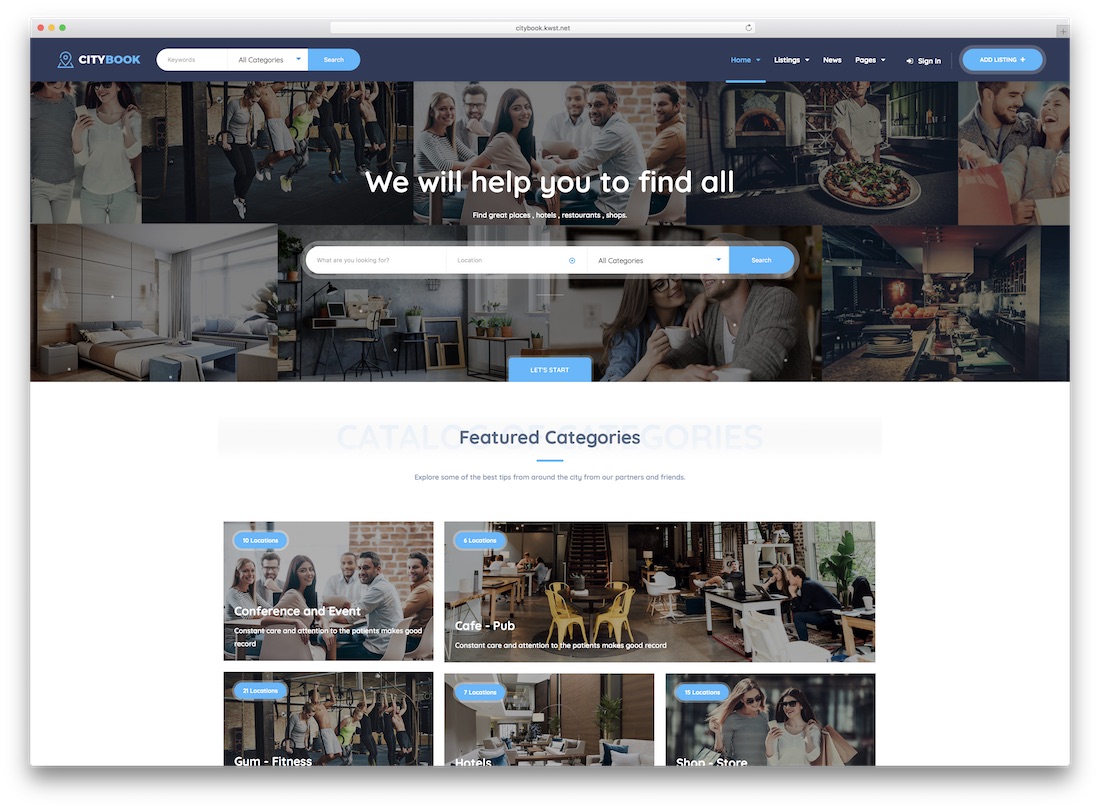 In the digital age, establishing a feeling of community has become increasingly crucial than ever, and one strong tool that has arisen to assist in forging links among similar people is the internet directory, such as https://wonnox.com, which offers a structured way to gather and share information.
In the digital age, establishing a feeling of community has become increasingly crucial than ever, and one strong tool that has arisen to assist in forging links among similar people is the internet directory, such as https://wonnox.com, which offers a structured way to gather and share information.
In the digital age, establishing a feeling of community has become increasingly crucial than ever. One strong tool that has arisen to assist forge links among similar people is the internet directory. Web directories offer a structured way to gather and share information, enabling users to explore different interests and connect with others in meaningful ways. By organizing resources and facilitating interaction, these forums have become essential in bridging gaps between individuals and encouraging collaboration.
Web portals additionally enhance this idea by serving as comprehensive gateways to a richness of information and services. They function as hubs where users can access directories, forums, and other resources, all while cultivating a vibrant online community. Triumph stories from various web directories and portals show how these tools can change isolated individuals into active participants in a broader ecosystem, creating networks that empower users and disseminate knowledge across diverse fields.
The Progression of Internet Directories
Internet directories appeared in the early days of the internet as valuable tools for categorizing the extensive variety of content present on the internet. Initially, they operated as simple lists of online destinations, sorted by topics and maintained by individuals or small groups. These directories provided a way for individuals to navigate the growing web, helping them uncover resources and information quickly without the complex search algorithms we see today.
As the internet persisted to develop and progress, so did the concept of web directories. They started to adopt more advanced features, such as contributions from users, editorial oversight, and search features. This transformation led to the emergence of popular directories such as YHOO and DMOZ, which shaped how users connected with web-based information. The focus moved from mere enumeration to delivering curated, high-quality content that visitors could depend on, thereby boosting the overall user experience.
With the emergence of web portals, the purpose of web directories evolved yet again. Portals combined directories with extra features such as news, email, and discussion boards, creating a more comprehensive online experience. This change not only expanded the scope of what a web directory could offer but also fostered community building among users. As social interactions and user content became more common, web directories adjusted to better serve these needs, resulting in the diverse array of platforms we witness today.
Effective User-Centric Web Portals
Collaborative web portals have become essential hubs for cooperation, exchanging ideas, and resources. One significant illustration is Reddit, a platform where users can build and participate in communities, known as subreddits, based on shared interests. This dynamic environment encourages lively participation and discussion, allowing individuals to submit content, disseminate experiences, and connect with like-minded users. The option to upvote content and moderate discussions aids maintain a superior quality of engagement, making Reddit a prime example of a successful community-driven web portal.
Another effective portal is Nextdoor, which unites neighbors and local communities. By providing a platform for residents to disseminate local events, suggestions, and safety updates, Nextdoor bolsters community ties and encourages engagement. Members participate in discussions about local news, post inquiries for services, or simply tell experiences, constructing a vibrant, cohesive web portal that enhances local life. The focus on locality makes it a unique platform driven entirely by community needs.
Lastly, Stack Overflow supports a particular yet large community of developers and programmers. This web portal allows users to ask technical questions and receive solutions from peers in the field. The cooperative nature of Stack Overflow not just aids self learning but also builds a vast storehouse of knowledge that becomes increasingly valuable over time. The reputation system encourages quality contributions and nurtures a community of support and persistent learning among its users.
Tips for Building Compelling Directories
Establishing an inviting web directory demands a navigable design that encourages discovery. Initiate by confirming that your directory has a clean and user-centered layout. This involves easy-to-follow navigation menus, distinct categories, and a search function that permits users to locate relevant content promptly. By prioritizing user experience, you not only facilitate easier access to information and also keep users coming back for more.
Including community-driven content can greatly enhance the engagement level of your directory. Motivate users to get involved by permitting them to add their listings or take part in discussions. User-generated content encourages a sense of community ownership, leading visitors feel more engaged. Showcasing popular listings or showing user reviews can also provide valuable insights for new visitors while promoting active participation.
Consistently updating the content within your directory is vital for maintaining user interest. You can achieve this by including a blog, news section, or highlighting events relevant to your directory’s niche. Fresh content keeps users engaged and motivates them to check back often. Additionally, contemplate adding feedback mechanisms, such as surveys or comment sections, to grasp user needs more effectively and adjust the directory accordingly.

